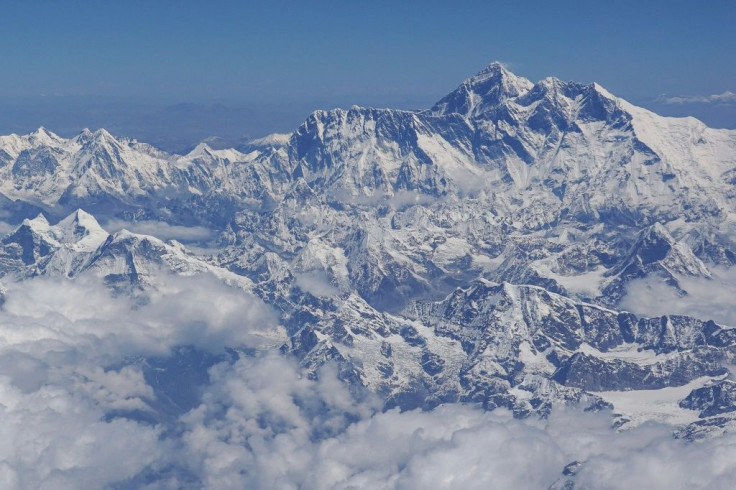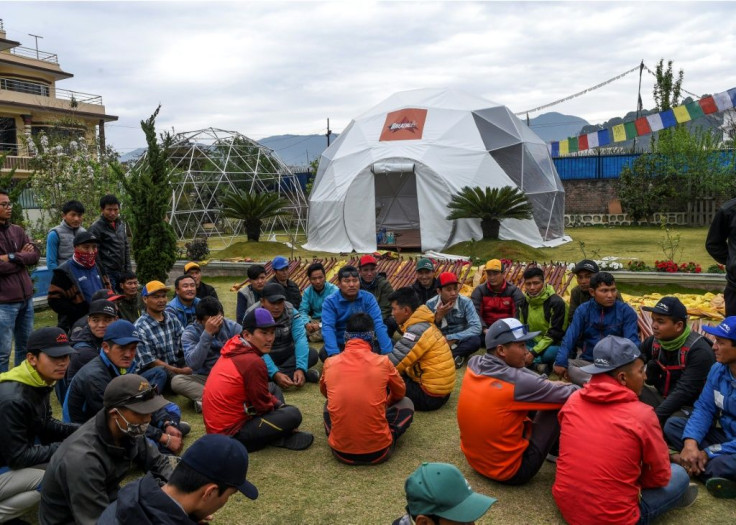Pandemic Shuts Down Everest As Nepal Suspends Permits

Nepal on Friday barred climbers from all mountains -- including Everest -- over the coronavirus pandemic, in a major blow to its tourism industry.
The move could cost the Himalayan nation tens of millions of dollars in revenues drawn by the world's biggest mountain, and expedition organisers said it would cause a financial disaster.
"The government has decided to suspend all spring expeditions and scrap permits for the time being. The decision can be reviewed after analysing the global scenario over the coming month," tourism minister Yogesh Bhattarai told AFP, adding no more visas would be given on arrival for foreigners.
Nepal's move came a day after China barred access from its side.
The country, still recovering from a major 2015 earthquake, was hoping to attract two million tourists for the first time in 2020.
"This is disappointing news for both our expedition leaders and our clients who have trained for months for this year's climb," said Lukas Furtenbach, head of US-based Furtenbach Adventures.
Every spring tents cities of hundreds of foreign climbers and support staff grows at the foot of Everest and other peaks.
All have to live in close quarters. As the air thins, breathing is already difficult at higher altitude -- adding to medical risks if there is an outbreak of any kind among climbers.
Mingma Sherpa of Seven Summit Treks, one of the biggest Everest expedition organisers, said the decision was right because there could "10 times" the harm if there was an outbreak on a mountain.
"I urge climbers to not panic because they can't climb this season, our mountains will always be with us," Sherpa said.
Nepal has issued only five permits for the season but none for Everest so far.
Climber Vanessa Estol from Uruguay was hoping to be the first woman to summit Everest from her country.
"Climbing Everest was a dream. I feel really bad," said Estol.
"I was training and planning for a year. But safety is always first."

Everest attracts hundreds of mountaineers from all over the world each spring, when a window of good weather opens up between late April and the end of May, prompting a rush for the summit.
Last year's spring window saw a record 885 people summit Everest, 644 of them from Nepal and 241 from the northern flank in Tibet.
The traffic-clogged season saw 11 deaths on the mountain, with at least four blamed on overcrowding.
But the expedition is not cheap. An Everest permit costs $11,000 and the total cost of the climb can be anything between $30,000 and $130,000.
This will be the third time in the last decade that Everest's summit will be empty.
Climbers abandoned the mountain after the 2015 earthquake triggered an avalanche which killed 18 people at Everest base camp before the season began.
Only one climber reached the summit in 2014, when an avalanche claimed the lives of 16 Nepali guides on the notorious Khumbu icefall, forcing organisers to cancel expeditions.
Santa Bir Lama, president of Nepal's mountaineering association, said the cancellation will have "devastating" repercussions on the country's tourism.
"Companies will suffer and workers even more. But it is a responsible thing to do considering the risks," Lama said.
Many guides and support staff depend on the short climbing season for the bulk of their annual earnings.
"We work three months and earn to support our families, pay rent. If that is not there then how do we live?," said Everest guide Lhakpa Sherpa.
Kami Rita Sherpa, who hoped to break his own record of 24 summits of Everest this season, said the government should come up with a compensation plan.
"Some people are in trouble here, the government should decide on a salary for those in the trekking sector," he said.
© Copyright AFP 2024. All rights reserved.



















